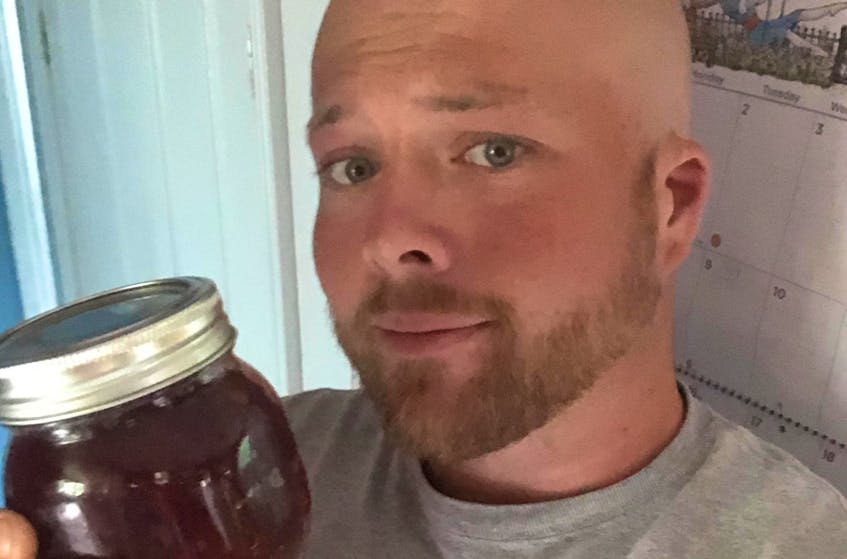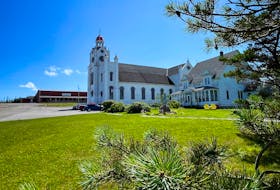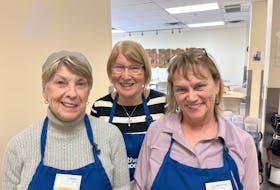Newfoundland and Labrador has a culture like no other and traditions that stem not only from the various nations whose proud peoples flocked to our shores over centuries but also from the life that we carved out with sweat and blood from an unforgiving, harsh and beautiful landscape.
Our winters and geography have always been notoriously brutal; even the famously tough Vikings couldn’t survive our colder seasons and rough terrain long enough to lay down a permanent settlement.
Newfoundlanders, though, brought from our various ancestral homelands more than a few tricks to not only survive where others had perished but to thrive on these rocky shores. These traditions have woven the fabric of Newfoundland culture that lasted well past the industrial era and into this relatively affluent age, where surviving the winter refers more to having to deal with the youngsters over Christmas break than overcoming starvation.
In particular, the tradition of bottling preserves during better seasons to overcome winter is the cornerstone that supported our lives through the bitter cold.

Time for a cultural checkup, so to speak: has our tradition of bottling preserves begun to wane now that we live in this easier time? What (if anything) do we still know how to preserve in jars? Are we still passing this knowledge down to our youth? How important do we still consider this tradition in the face of the ease of life in which we now find ourselves living in?
I sought out some answers via telephone, email and social media, and here are what some of my contacts had to say about it.
Lorelei Jenkins – Gander, NL – age 34

"I learned how to bottle about eight years ago from my mom and Pinterest. The first thing I bottled was mussels, but in time, I learned to bottle other things like pickled beets and, last year, I learned to bottle moose, rabbit, blueberry jam and partridgeberry jam. Of course, I also plan on teaching my kids how to bottle preserves, too, one day. It’s very important to me to keep our Newfoundland traditions alive!"
Ashley Kelly – St. John’s, NL – age 19
"I was very close to my nan and pop out home. Both of them took part in bottling and canning things. Nan was the hunter and Pop was the farmer. Together, they taught me how to bottle moose, grouse, rabbit, peaches, pears, jams, beets, pickles and caribou since I was around 12 years old. The main thing to remember is that it has to be pressurized or you can get seriously sick! That’s part of why I feel like it’s so important to pass the knowledge on to future generations. If, sometime in the future, just to survive our winters if things in Canada take a turn for the worst, we will need that skill. That’s why I’m making sure to teach my own kids how to can and bottle."
Keshia Walsh – Gambo, NL – age 27
"My grandmother Robena was known to have the best bottled beets around! She taught my mother, and my mom, Ledona, taught me. I just stick to beets but my family members – such as my uncle - know how to can moose and so on. I’m interested in learning how to do more though. Especially given our current economy and keeping traditions alive, it’s good to practice bottling! It’s extremely important! While the future is here, we have to keep our culture alive. A lot of younger generations love Jiggs’ Dinner and it’s just not the same without a side of homemade bottled beets, etc. That knowledge of bottling can be proven useful in so many ways."
Hannah Bursey – Dover, NL – age 73

"I bottled beets, moose, rabbit, caribou, grouse, mussels, mustard pickles, cucumber pickles, jams, jellies and just about anything you can think of that can be bottled since I was around 40. My own mother taught me and it was passed down the family for years and years. A lot of what my family ate in childhood was bottled stuff and we loved it. We looked forward to it every fall. I’d like to share with all your readers my family recipe for mustard pickles that goes well with Jiggs’ Dinner."
While the traditional Newfoundland method of preserving food in jars uses the water bath (boiling pot) method, this is only recommended for high acid or vinegar-based preserves, such as the recipe below. For food safety reasons, it’s highly recommended to use a pressure canner when preserving low acid foods such as wild game.
Nan’s Newfoundland Mustard Pickles
2 cups white vinegar
¼ cup corn starch
10 small cucumbers, diced
2 large onions, diced
1 tsp mustard seed
2 tbsp dry mustard
1/2 cup cold water
1 tbsp yellow mustard
1 ¾ cups sugar
¼ cup salt
Directions:
First, sterilize all utensils, lids, and jars by boiling them in a large pot with a rack on the bottom, fully submerged in water for one hour.
As it’s boiling, prepare the pickles as follows: Combine cucumbers, onion, and salt in a large bowl. In a separate bowl, combine spices, sugar, mustard, water and corn starch together to make a slurry.
Heat the vinegar in a large saucepan to a simmer and add all remaining ingredients, aside from cucumber/onion mixture, while stirring until thickened.
Add cucumber/onion mixture and cook for 12 minutes.
Cover, reduce heat by half and let simmer for one hour.
Remove jars while hot with tongs, fill each one and seal. Let cool on wire racks.

It seems as though the Newfoundland tradition of bottled canning with mason jars isn’t about to die off anytime soon and is still thriving despite the drastic changes in cultural climate…but it couldn’t hurt to help it survive, despite our modern age, considering without that knowledge, Newfoundlanders wouldn’t have survived to have descendants that can talk about it in 2019.
There are many recipes out there amongst friends and family members, and across the province, that are worth checking out. It’s my sincere hope that you ask an elder or other family member to teach you how to practice bottling if you haven’t learned already.
Preserves are a part of our culture that is well worth preserving.









